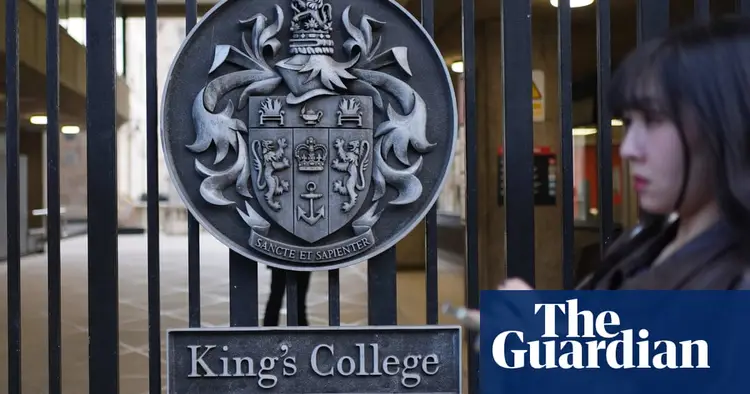Labour’s stopgap tuition fee rise is a further test of students’ faith

It was bound to be challenging for a Labour government to navigate the issue of tuition fees effectively. After having previously pledged to eliminate them, Keir Starmer's administration has had to reveal a fee increase just a few months after taking office.
As concerns grow regarding the financial crisis facing universities in England, and with the genuine threat of some of them failing, government officials seemingly saw no option but to remove the fee cap. This will allow tuition fees to rise, aligned with inflation, to slightly above £9,500 starting next October.
The increase might seem modest – just an extra £285 added to the existing £9,250 yearly fee – but it carries significant political weight. This marks the first increase in eight years, highlighting the government's deep concerns regarding the condition of the higher education sector.
Vice-chancellors are worried that the rise in funding won't come close to meeting their needs. Professor Sasha Roseneil, the vice-chancellor and president of the University of Sussex, stated that while the government’s slight increases in tuition fees and maintenance loans are a step towards counteracting the impact of inflation, they are ultimately insufficient for both students and universities.
Many students are already apprehensive about accumulating debt and are concerned about their ability to pay for university. They worry that the rising tuition costs might continue, with potential increases occurring during the remainder of this parliamentary term.
For the Conservatives, who have consistently avoided raising fees, this shows yet another instance of Labour failing to keep its promises.
Many people in the industry see it as a temporary measure until more comprehensive changes are made. Sam Freedman, who used to serve as a policy advisor for the Department for Education, echoed the sentiments of many when he wrote: “The rise in tuition fees linked to RPI is essential as a stopgap to prevent the higher education sector from collapsing, but it doesn't address the funding model that is placing excessive strain on young professionals, especially with rising housing costs and lower income tax thresholds."
How did we end up in this situation? In 2012, the coalition government raised tuition fees to £9,000, causing a short-lived surge for universities in England. During this period, many institutions seized the opportunity presented by low interest rates to borrow substantial amounts from pension funds and investment banks, which they used to fund the construction of modern and impressive buildings.
Many individuals are still working to repay their loans, but their earnings have decreased due to the prolonged halt in domestic tuition fees. These fees haven't increased since 2017, and when they did rise, it was only by an extra £250.
Vice-chancellors have tried to fill the financial shortfall by enrolling more international students, who pay significantly higher fees since there are no limits on their tuition costs. However, this source of funding has been affected by the previous government's restrictions on student visas.
As a result, around 40% of universities in England are predicted to experience financial shortfalls this year. There are also reports that three or four institutions are facing significant challenges, with many others having to lay off employees and discontinue programs. It is now up to students to support their universities in overcoming these challenges.
The Institute for Fiscal Studies has stated that if the government maintains its approach of raising fees in accordance with the RPIX inflation rate annually, the tuition fee limit could rise to £10,680 by the 2029-30 academic year based on existing projections. They emphasized that if the government intends to keep increasing the fee cap in line with inflation, it should make that clear to give both universities and future students a sense of certainty.
Kate Ogden, a senior research economist at the Institute for Fiscal Studies, expressed that university vice-chancellors will be relieved that the government has decided not to prolong the freeze on tuition fees. This decision will help universities avoid an additional real-terms reduction in their funding of approximately £390 million for the upcoming academic year.
Naturally, the increase in fees now will lead to larger student loan payments in the future. As a result, graduates will end up paying back about 75% of the additional amount they’ll need to borrow because of this new decision.
Regarding the rise in student maintenance loans, she pointed out that the government has not managed to address the significant reductions in support that have occurred in recent years. "Even with the increase, the most disadvantaged students will be able to borrow roughly 9% less next academic year compared to a similar student five years ago," she stated.
There is growing concern that rising tuition fees may discourage students, especially those from less privileged backgrounds, from pursuing higher education. A first-year product design student expressed to the BBC, “I believe this is already a significant concern for many people when considering university, so raising the fees is a major factor.”



















































